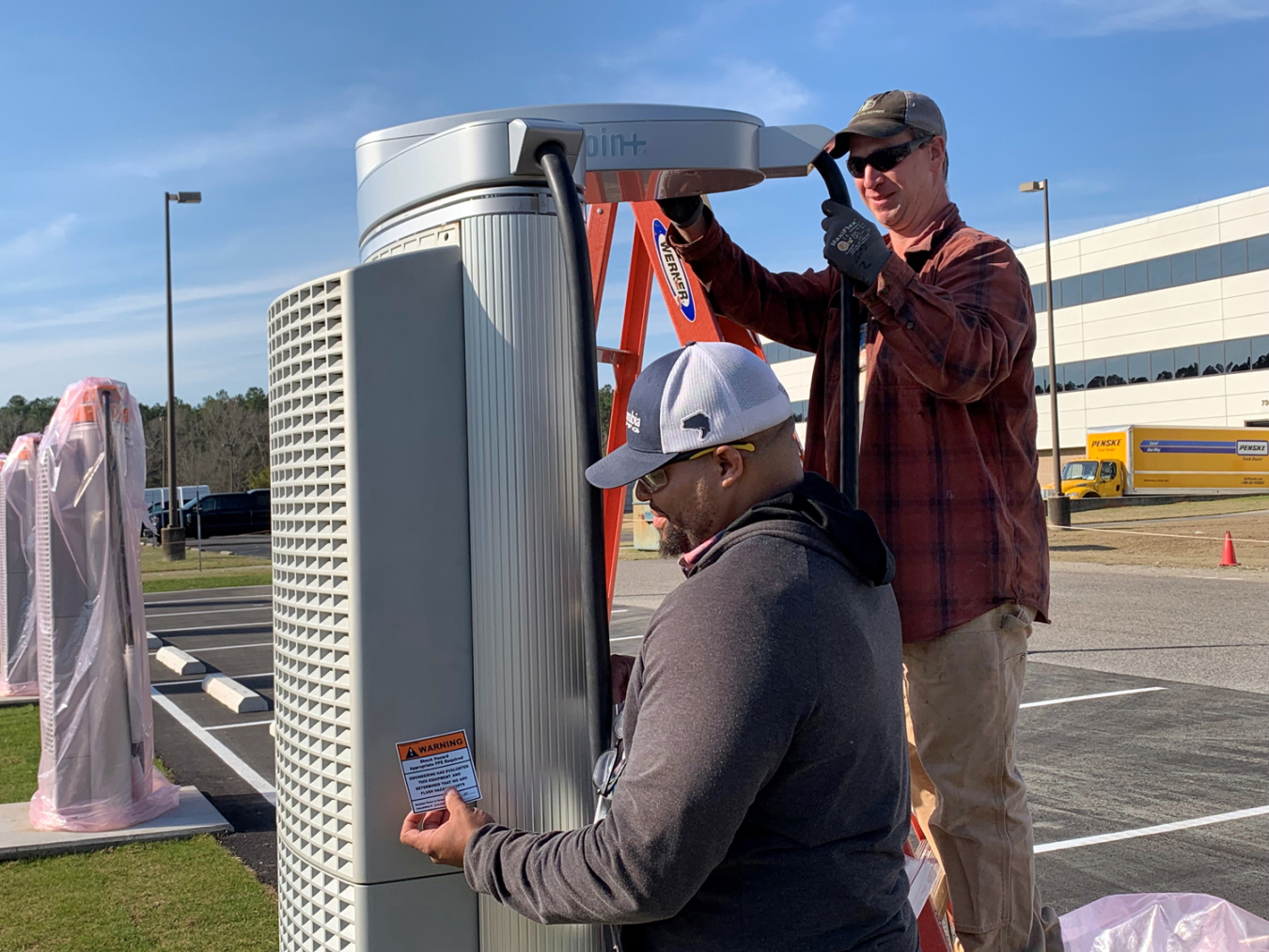An EM contractor is on pace to exchange octane for watts, modernizing a fleet of nearly 1,000 vehicles at the Savannah River Site (SRS) to help improve the environment.
Office of Environmental Management
March 14, 2023
AIKEN, S.C. – An EM contractor is on pace to exchange octane for watts, modernizing a fleet of nearly 1,000 vehicles at the Savannah River Site (SRS) to help improve the environment.
“We’re moving towards a zero-emissions future on the roads of the Savannah River Site for our government-owned vehicles,” said Mike Budney, DOE-Savannah River manager. “The teamwork between the Department of Energy and Savannah River Nuclear Solutions (SRNS) has been great towards ensuring this task is recognized as a high priority.”
SRS is working to comply with a Biden administration executive order on catalyzing clean energy industries and jobs through federal sustainability. The site’s first phase is underway with the conversion of a light-duty vehicle fleet to electric vehicles.
“The first 62 electric vehicles, representing 10% of the light-duty fleet, have already been ordered through the General Services Administration and are awaiting delivery from manufacturers,” Donny Barfield, SRNS director of Site Services, said. He added that light-duty transportation typically includes passenger vehicles and pickup trucks.
The electric vehicles require multiple charging stations placed at logical locations across the 300-square-mile site, Barfield said.
In one area of SRS, crews have installed eight fast charging stations near administrative buildings that will provide a zero-to-80% charge within 30 minutes for vehicles with a range of 200 miles. Construction of additional stations in other areas will soon begin.
“Our goal is to have the electric vehicle infrastructure in place as needed to support our 630 zero-emissions, light-duty vehicles as they are delivered, working towards fully meeting the directives within the executive order,” Barfield said.
The executive order also specifies that gasoline powered vehicles may not be purchased for use at federal facilities after 2027.
In additional phases of the project, SRS will convert mid- and heavy-duty vehicles to zero-emission engines.
“The work accomplished at the Savannah River Site on this groundbreaking project for the complex has been impressive,” said Barfield. “It’s truly taken a team effort from multiple individuals and organizations to realize the progress we’ve seen to date.”
To receive the latest news and updates about the Office of Environmental Management, submit your e-mail address.

